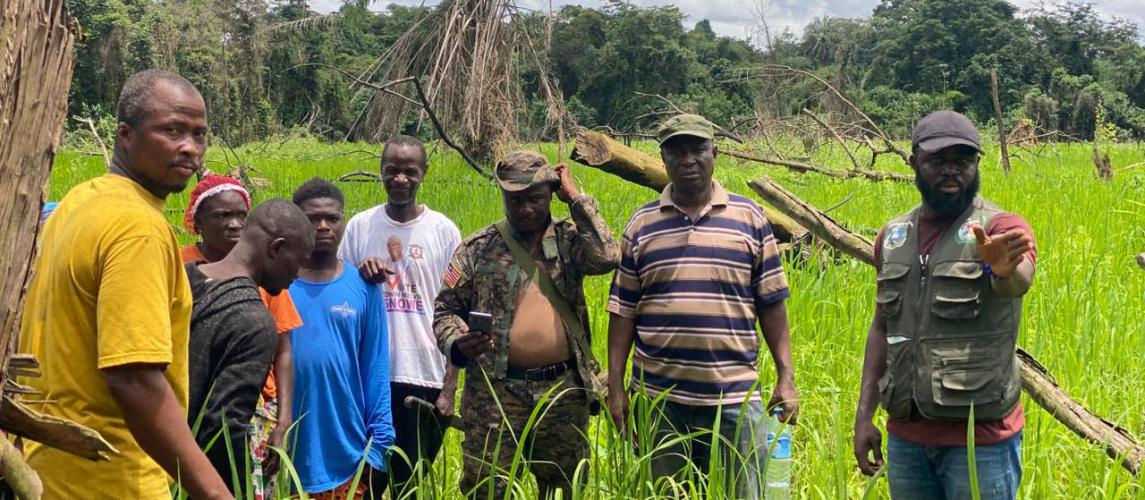
Human-Elephant Conflict Prompts Swift Government Response
GBARMA DISTRICT, Gbarpolu County - A surge in human-elephant conflicts, leaving a trail of destroyed farms and rising food insecurity, has prompted a swift and coordinated government response in western Liberia. From August 14-16, a high-level assessment team visited devastated communities in Grand Cape Mount and Gbarpolu Counties to evaluate the damage and plan immediate interventions.
The mission, led by the Forestry Development Authority (FDA) in collaboration with the National Disaster Management Agency (NDMA) and the Ministry of Agriculture, was dispatched following urgent complaints from residents. Farmers reported repeated incursions by elephants that have flattened crops, destroyed livelihoods, and instilled a pervasive fear that is keeping many from their fields.
The delegation, including Mr. Boima Z. Ricks, FDA Wildlife Law Enforcement Officer, Mr. Gaylor Wesley of the NDMA, and Mr. James Jimmy Sando, District Agriculture Officer, held community meetings before visiting affected farms. They witnessed extensive damage to vital staple crops, including cassava, plantain, and peanuts, which form the bedrock of local food supply and income.
“We are told not to harm the elephants, but what are we supposed to do when our farms are gone?” an elder in Gbarpolu County asked the team, capturing the desperate dilemma faced by communities caught between conservation laws and survival.
The government team pledged urgent support. Mr. Gaylor Wesley assured residents that the NDMA would work with partners to mobilize immediate assistance for those whose livelihoods have been severely impacted. Mr. James Jimmy Sando reaffirmed the Ministry of Agriculture’s commitment to helping the region’s agricultural recovery.
This proactive response is driven from the highest levels of government. Under the stewardship of Managing Director Rudolph J. Merab, the FDA is prioritizing the welfare of forest-dependent communities, a commitment aligned with President Joseph Nyumah Boakai’s “Triple P” vision of People, Planet, and Profit.
The escalating conflict is attributed to a combination of factors, including habitat loss from artisanal and industrial mining, unsustainable logging, and shifting cultivation. Conservation experts point out that these pressures, compounded by climate change, are pushing wildlife out of their traditional habitats and into direct competition with human settlements. This encroachment not only threatens livelihoods but also increases the risk of exposure to zoonotic diseases.
While the government searches for a lasting remedy, experts warn that without integrated landscape management and community-based solutions, both Liberia’s rich biodiversity and the well-being of its rural citizens will remain critically at risk. The FDA and its partners have committed to returning to the affected communities with a plan of action, aiming to find a balance that protects both the endangered elephants and the vulnerable people who live alongside them.
